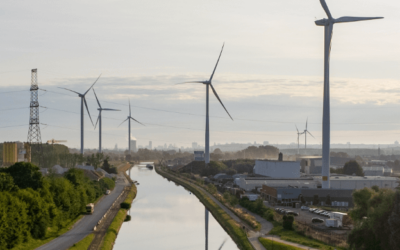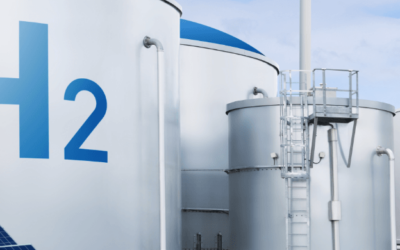Another new application round for the DEI+ grant started in April. The abbreviation stands for ‘Demonstration Energy and Climate Innovation’. The DEI+ scheme offers attractive grant opportunities for parties involved in new innovations and pilots. This article provides more information about the conditions and how to apply for this popular Dutch grant.
DEI+ is intended for pilots and innovation projects
The DEI+ scheme supports innovative climate and environment projects. The grant is intended for innovation projects in the form of a pilot or demonstration project:
- pilot projects must involve new experimental products (with experimental development and tests in a real-time environment
- demonstration projects must involve innovations that are new for the Netherlands (with investments in practical applications for the end user or operator).
The bar is set very high! And yet the scheme does offer some attractive opportunities for primary industrial parties involved in innovations that offer significant improvements in energy savings or carbon emission reductions. Cooperation on projects is permitted and is often advisable, but is not a mandatory condition. It is more important that a project is a good match for the official grant themes, objectives and conditions.
DEI+ grant themes in 2022
The DEI+ scheme offers space for projects within eight themes in 2022. This concerns the same themes as in 2021, namely:
- Energy efficiency: this theme offers opportunities for investments focusing on reducing energy consumption in a process industry company’s own production processes.
- Circular economy: this theme concerns recycling and reuse of waste or replacing fossil resources with biobased raw materials. Note: it is only possible to apply for grants for large projects (several millions), particularly those relating to processing/upgrading third-party waste flows.
- Renewable energy: investments in solar power, wind power, aerothermal energy (ambient air), hydrothermal energy (surface water), geothermal energy (geothermal heat), ocean energy, hydropower, landfill gas, gas from wastewater treatment plans and biogas. There are additional opportunities for ‘spatial adaptation’ in extremely large-scale solar or wind power generation projects.
- Local infrastructure: an innovative local electricity or heat grid, for example. This must concern an ‘open’ system to which other companies can connect.
- CCUS: this involves promising pilots that focus on carbon capture, transport, reuse and storage (CCS/CCU). There are no grants available for temporary or permanent land-based carbon capture projects, but there are for pilots that involve reuse in greenhouse horticulture.
- Energy system flexibility: this theme involves pilot projects for hydrogen, electrolysis, large-scale energy storage, conversion of electricity to other carriers/products, and more manageable generation system innovations.
- Natural gas-free homes, neighbourhoods and buildings: this theme is seeking building or neighbourhood energy infrastructure innovations that offer the prospect of significant short-term improvements to the sustainability of existing buildings. There are good grant opportunities for municipal trial projects.
- Other carbon-reducing measures: this theme relates to other carbon-reducing measures in industry, the built environment or electricity sector. The agriculture and mobility sectors fall outside the scope of this theme.
Grant amounts and project size
The project costs of a promising DEI+ project will generally be in the region of at least one million euros. This is not a fixed grant condition but is a useful guideline based on our experience. The grant contribution is generally between 25% and 50% of the costs (this can be higher for SMEs and research institutions). A DEI+ project may run for up to four years. The grant per project can amount to up to 15 million euros. A maximum of 9 million euros applies to the ‘gas-free homes, neighbourhoods and buildings’ theme.
Application period and budget
The DEI+ grant adheres to fixed application rounds. The current round opened for applications on 1 April 2022. Grant applications can be submitted for as long as the budget lasts (67.6 million euros) and until no later than 4 October 2022 (5.00 pm), or 10 January 2023 (for projects within the ‘Natural gas-free homes, neighbourhoods and buildings’ theme).
The grants are awarded on a ‘first come first served’ basis, which is why we advise those interested to put their project plans or ideas to us as soon as possible!
Interested? We’d delighted to help you!
The DEI+ offers unique opportunities for pilot or demonstration projects focusing on energy efficiency, carbon emission reduction and other sustainable innovations. EGEN’s energy experts have years of experience with this grant (see the Enexis customer story, for example). If you’d like to know more about the opportunities within DEI+ or within another grant scheme, call us on 088-838 13 81 or use the contact form below to send us a brief note.


